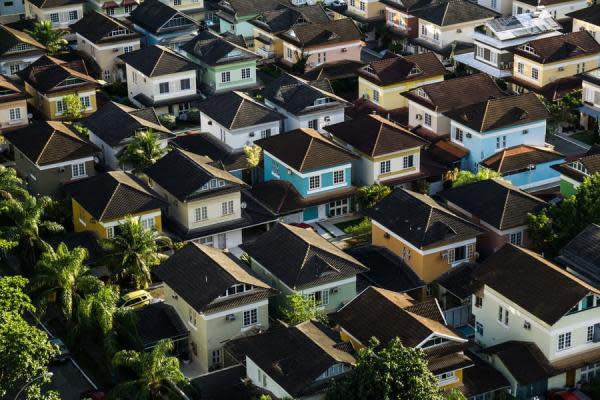'Something Dramatic To Close This Gap': Many Economists Want More Housing To Help Homebuyers

There’s a lot of homebuyer pessimism in the housing market these days. The share of people who thought that July was a good time to buy dropped to a new all-time low of 28%, according to survey data from the National Mortgage News. A year ago, that number was about 53%.
What Happened: The sentiment of homebuyers continues to drop. Despite low interest rates, which make home-buying more attractive, the price of homes continues to skyrocket, which has continued since the 1980s, making it harder for new homebuyers to enter the market, according to the Federal Reserve bank of St. Louis.
Another buyer index is at a record low. In August, homebuyer sentiment hit its lowest point — 75% — in over one year, well below market expectations of 80%, according to more data by the U.S. National Association of Home Building Housing Market Index.
Why It’s Happening: The issue is one of supply, according to economists and scholars who analyze the housing market. The availability of housing declined significantly during the pandemic. But the supply of entry-level homes particularly fell by 16% in the 1980s, a decline that has only continued to this day, according to Freddie Mac data. Much of this has to do with restrictive zoning policies, per Vox reporting, which makes it harder to build homes other than those that are designed for single families as well as those that promote building "out" rather than "up," thereby increasing the expense and preventing more people from living more densely.
Restrictive zoning policies are still on the books in many cities across the country.
This has a disproportionate effect on black and brown homebuyers due to historical state, local and federal policies that excluded such people from owning homes at all, and frequently from owning homes in more prosperous neighborhoods, according to Richard Rothstein’s "The Color of Law."
A low housing supply may also increase homelessness, as it raises the costs of rent and puts more people on the street who can’t cover monthly housing payments.
As such, many housing economists believe it’s critical to build more homes to lower prices and allow more first-time homebuyers to enter the market.
“The importance of more home building cannot be overstated. Inventory has been increasing in recent months, but we have a decade of underbuilding to make up for and July's (month over month) decline in housing starts isn't welcome news,” Odeta Kushi, deputy chief economist at First American, tweeted Wednesday.
What Else: The market may be shifting from “red hot” to simply “hot” in the short-term, as the price of listings has dropped, particularly compared to the figures seen in the spring.
The share of homes with a price drop rose to 4.9% for the 15th week in a row, according to a report by Redfin, a real estate brokerage service. Homes are also staying on the market longer, and demand for second homes fell by 21% year over year, according to a report by the same organization.
Still, many believe this is a long-term problem that can only be solved with more smaller homes that occupy less land coming onto the market. Without them, the housing shortage may well continue to be a “crisis,” which it was labeled according to a National Association of Realtors report.
That organization's solution: build 5.5 to 6.8 million homes to cover the gap in the housing shortage.
The association’s chief economist Lawrence Yun was blunt in his June response to the NAR’s findings.
"It's clear from the findings of this report and from the conditions we've observed in the market over the past few years that we'll need to do something dramatic to close this gap.”
Photo: Breno Assis via Unsplash.
See more from Benzinga
© 2021 Benzinga.com. Benzinga does not provide investment advice. All rights reserved.

 money
money 